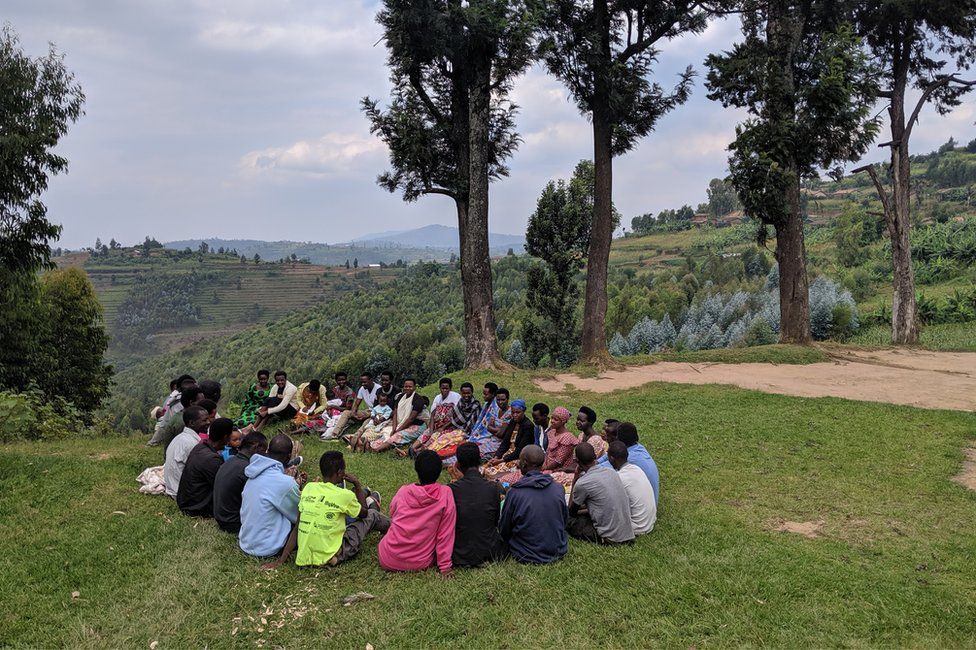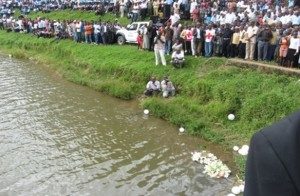
In a series of posts over the coming weeks we will profile participants in our Foundation Rwanda Youth Camps. As an introduction, we provide a summary of the programme here, which has been running since 2015 and has supported over 200 young people who were born to women survivors raped during the genocide.
Youth Camps were preceded by the Counselling Community Initiative, the intention of which was to support women survivors who were raped during the 1994 Genocide against the Tutsi and who had children born of rape, which were seen as a burden for them. These rape survivors were provided with psychological support to help them have self-acceptance of their worst experiences, accepting their children born of rape, and supporting disclosure for those choosing to do so, because the children were of an age asking about their origin. This was something that used to generate conflicts for them, as result of their identity crisis. This is a process that is still ongoing because the trauma of the rape which the women underwent during the Genocide has not enabled all mothers to fully disclose all circumstances of the origin of their birth to their children. Since it is a process, a child born of rape gradually becomes more inquisitive and keeps asking his/her mother different questions throughout their lifetime.
As a result, there are some young people have been made aware of the circumstances of their conception, and have accepted this, even though it has not been easy for them. On the other hand, some have not warmly welcomed the learning that they were fathered by Interahamwe militiamen (and thus being the children of killers). This is particularly the case for children who do not know their fathers, as they had already fled to neighboring countries such as DR Congo, Uganda, Tanzania, Burundi, and elsewhere. The identity crisis for them is exacerbated by transgenerational trauma originating from their mothers. If their fathers had not fled, they would have been put in prison due to their atrocities of killing the Tutsi and raping the Tutsi women during the Genocide.
It is in this context that the idea of bringing them together in a Youth Camp was developed, with the intention to support them psychologically so that they may have self-acceptance as regards to their birth background – and to not see that as bad, but as a fact of their lives that they have to live with and try not be harmed by it too much, as they had not played any part in it.
Twice a year SURF/FR brings together 30 youth for three days, and the youth are psychologically facilitated by Counselors/Psychologists, and other experts. Through the groups in which the youth are formed, they are provided with knowledge and skills. The intention is to help them cope with problems youth in Rwanda and the world in general are still facing. Their groups are as follows:
Large Group: This is one group made up of all 30 of the participating youth, in which they are provided with different knowledge and skills related to mental health problems, substance use disorders, entrepreneurship and management of small income generating activities, history of Rwanda, Sexual Transmitted Diseases (STD’s) and Reproductive Health.
Small Groups: These are the small groups in which each small group is made of 10 youth headed by a Counselor/Psychologist. After building up confidence and a sense of security in the group, the Counselor/Psychologist supports them psychologically and listens to them in such a way that each youth is given space to be open and share his/her problems and feelings, either recent or those originating from his/her childhood.
Relaxation sessions: Between the periods allocated to the Small Group and Large Group, the youth are offered a relaxation session whose intention is to refresh the brain. For beneficiaries who come from the small groups, where they talk about their psychological wounds in life, for some, the feelings rise up, and for others, they suffer from negative thinking. As such, relaxation sessions help to refresh their brain and get rid of negative thinking. During the relaxation sessions, Counselors/Psychologists help the youth to do relaxation exercises, explain the importance of them to the brain, and encourage them to do them in their day-to-day lives, even after Youth Camp.
Individual Counselling: In Youth Camp, Counsellors/Psychologists offer an opportunity to any youth in their Small Group who has not been able to be open in the group, to be received in Individual Counselling whenever he/she feels this is the channel in which he/she feels more comfortable. The time for Individual Counselling is always reserved during Youth Camp for at least one hour a day.

